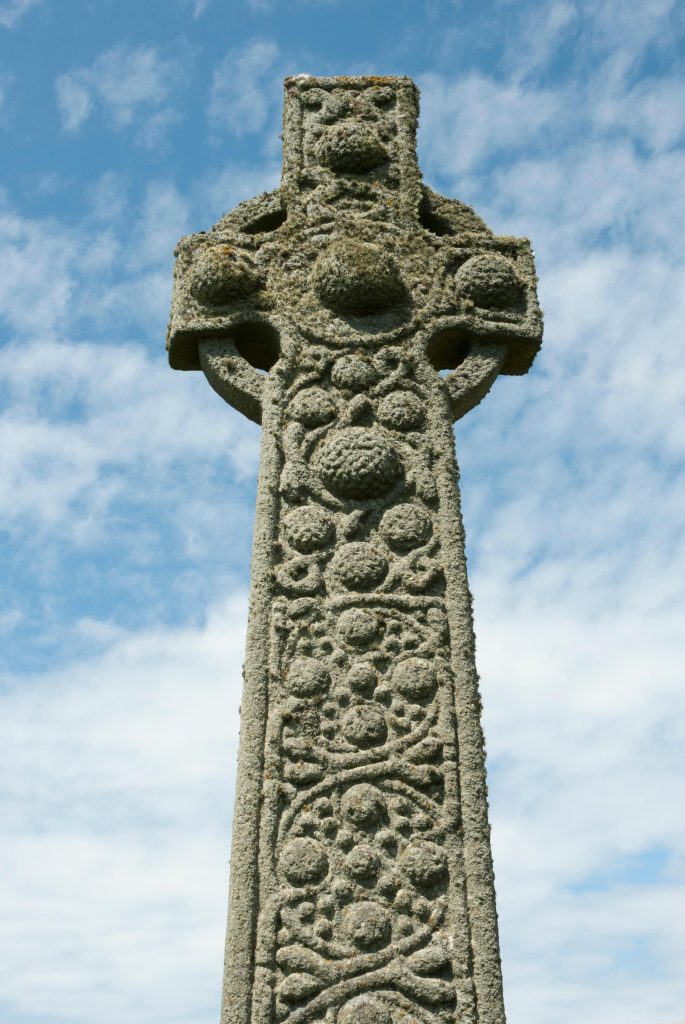If we believe that Orthodoxy today is truly the successor to the Church founded by the Apostles in the first centuries of the Church, then – like the first apostles, we have a duty to ‘ go .. into all the world, and preach the Gospel to the whole creation’ RSV Matthew 28:15.

The Greek Orthodox Church is rooted in the language, countries, ancient liturgies and iconography of the earliest churches. The coming of this ancient Church to Britain, therefore, is a call to all the churches of Britain and Ireland to rediscover their own roots.
The ancient origins of the church in Britain cannot be denied. Much of it is lost in the midst of time because the early Romano-British churches were soon overrun by pagan tribes, when the Romans left. The early Romano-British were pushed back into Wales, Scotland and Ireland. Many of the remaining British Christians sent their offspring to Irish monasteries for their education and priestly studies, and Irish monks were soon sending missionaries into Britain, founding- among others – the influential monastery of Iona. Soon, these missionary endeavours from the western seaboard combined with new missions from Rome to convert the Anglo-Saxon hoards. Long before the Great Schism, which divided Constantinople and Rome, Britain entered a golden age of Christian culture and learning .
The Greek Orthodox Church in the UK must build on these ancient British roots. We need a Menaion of British Saints, and we need icons of British Saints. There is much in the pre-schism tradition of monasticism in Britain which closely corresponds to it’s Greek counterparts. There is much in the landscapes of Wales and Scotland which reminds us of the landscapes of Greece – much in the traditions of local cultures which reminds us of the local cultures of Greece. There is much to be gained in mutual enrichment from building bridges between these two ancient Christian cultures.
Saints Paisios, and Porphyrios both foresaw that the UK would enter a new age of Christian growth, if we sought the holiness of our own tradition – that holiness which the relics of the early saints have imparted to the soil of our homeland, even if those relics are holy dust, burnt and scattered during the Protestant Reformation. To nurture the flame of faith we must write the services of the British Menaion. A few akolouthia (services) have been written in full. A few service parts have been written by various parishes, up and down the four countries. Nevertheless, these need to be collected and collated, and new services written for the major saints of our tradition.
These Services must be written well. They need to be written in a way which combines the best of of British prose poetry with the rhythms of Byzantine chant. Like Greek, British is a subtle language, which can be written beautifully with many overlays of meaning and paradox. We have a paradoxical faith – God and man, crucifixion and resurrection, birth in a cave and ascent into heaven. Early Christian hymns and poetry, whether written in Greek or Latin, early English or Gaelic, retain these qualities, kindling a spirit of worship and awe. We have little early Welsh religious poetry, but what we do have is based on stress and syllabic count, as is much Greek verse. Such religious poetry, as we know from listening to the hymns of the Menaion, can be assembled to teach the Christian community and train the youth. This is what we must do. This is the tradition we must build on in the UK.

manuscript: Caedmon was a monk of Whitby Abbey, who
learnt to compose miraculously. Manuscript written at
Malmesbury, 10-11c.
Here in Shrewsbury, the Orthodox community is keen to collect what services have already been written, and to enable the writing of services for our local saints who, as yet, have no Menaion ( saints services), particularly those whose relics we have in the church. This, however, will take time and money. If there is any way in which you can contribute, whether by your skills, by funding translation, commissioning the writing of a new service, or by a donation to the costs, it would be an enormous gift to the church and to future generations of Orthodox Christians.

Nicaea, Shrewsbury, Welsh Marches.
Particular projects of interest at the moment are English services for Melangell of Wales (she of the hare!) and Milburga of Much Wenlock. A service for Melangell has been written in Greek, but it needs translation and an English setting. We have also recently celebrated Saint Chad, Apostle of Mercia, for whom we have an Akathist, written in English, from Hawaii(!) and part of his Akolouthia composed by Isaac Lambertson.